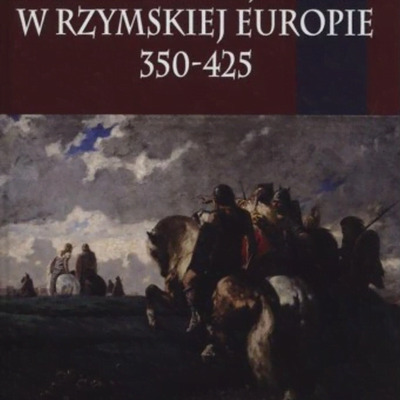The American historian, Mr. Hugh Elton, who currently works in Canada, published a book some time ago, in 1996, entitled “Warfare in Roman Europe, AD 350-425”, in which he thoroughly revised some of the common ideas about the army of the late Roman Empire. It is a slightly extended version of his doctoral dissertation, defended in 1994.
This is a very accurate description of late Roman military. The lecture is clear, which is a big plus of this work. The fragments in which, on the basis of preserved historical sources, the author shows us the way of seeing the barbarians by the Romans themselves are also instructive. This study contains some interesting statements supported by the analysis of preserved written sources and archaeological data. Some of them are worth discussing in more detail. A discussion of the following statements from the peer-reviewed paper is provided below:
- the author claims that the degree of barbarization of the Roman army (blamed with the collapse of the western part of the Roman state) in the period he discusses was not as great as many Roman researchers had previously believed. Admittedly, this is an interesting and bold hypothesis. Nevertheless, the method of analyzing the origin of Roman soldiers, based on the analysis of their names, and the smallness of the statistical sample, put a big question mark on the conclusions drawn by the author. This is due to the relatively limited number of preserved historical sources of this type.
- cavalry dominance on battlefields is typical of the 6th century CE, not the turn of the 4th and 5th centuries CE. The author also strikes, in my opinion, a good blow at colleagues from Germany and Austria, who can sometimes be perceived as having a slightly idealistic approach to the past concerning their ancestors. Ancestors who were never ethnically homogeneous human groups and did not achieve, in the period in question, i.e. before living within the borders of the Empire, a higher level of political organization of the type postulated by these and other historians, great tribal confederations.
- the civilizational development of barbarian communities living on the borders of the Roman Empire in the period from the turn of the era to the 5th century CE was not as significant as many researchers assume. The same applies to their political life as well as to their military organization. This is a thesis that stands in stark contrast to the theses of such researchers of late antiquity as Mr. Michael Kulikowski, who in his works tries to prove that especially the barbarian communities living in the Roman limes made significant civilizational progress as a result of contacts with people from the Roman Empire. Going further along this track, Mr. Kulikowski negates most of the message contained in the work entitled “Getica” by Jordanes (6th century CE). In my opinion, this is the wrong approach to the question of European barbarians, and therefore the views and arguments on this issue presented by Mr. Elton speak very clearly to me.
- the preserved archaeological traces of the discussed barbarian communities do not allow us to determine their “national” identity. However, on the basis of certain material premises, sedentary peoples can be distinguished from nomadic peoples with high probability (e.g. their remains are accompanied by large amounts of animal remains). I fully agree with the opinion presented by Mr. Elton in this work.
The work in question speaks to its readers in a loud voice. This is a voice that sounds controversial at times, but it is needed so that the realism in looking at the preserved sources and archaeological data is preserved, and the scientific discussion continues on the correct track.


